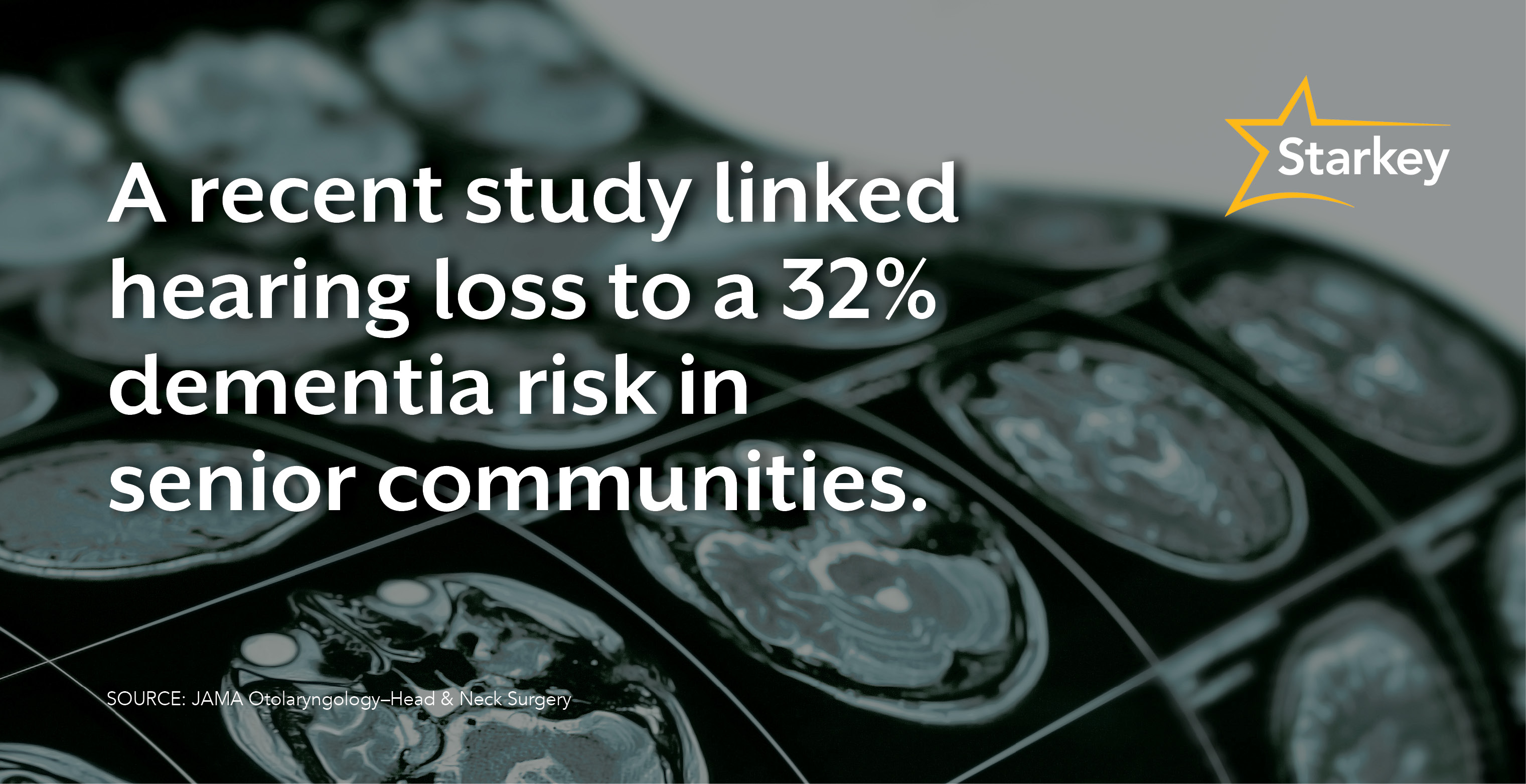Over the years, evidence has continued to mount supporting the association between untreated hearing loss and dementia—from the prestigious Lancet study that named hearing loss as the number one modifiable risk factor for dementia to the standout ACHIEVE research that found hearing intervention slowed the loss of thinking and memory abilities by 48% in older adults at an increased risk for cognitive decline.
Today’s hearing fact spotlights some of the latest findings to add to the list: A recent study found that hearing loss, from a population perspective, may be accountable for nearly one-third of dementia occurrences in older adults.
Doing our part to raise awareness of cognitive decline for World Alzheimer’s Day this Sunday, September 21, let’s explore the study behind today’s hearing fact and how hearing intervention may help protect against dementia.

Researchers examine hearing loss impact on senior community
Researchers from the Johns Hopkins Bloomberg School of Public Health conducted a national study in conjunction with the Atherosclerosis Risk in Communities Neurocognitive Study. Their goal was to answer the question:
What proportion of incident dementia is caused by hearing loss in a community-based population of older adults?
The study focused on 2,946 residents aged 66–90 from four senior communities who did not have dementia at the start of the investigation but did have audiometric hearing loss (diagnosed by a hearing care professional) and/or self-reported hearing loss.
The results showed an increased risk of dementia
After the eight-year observation, the researchers found that, from a population perspective, any degree of diagnosed hearing loss was associated with a 32% dementia risk. (They did not find an association with self-reported hearing loss and dementia risk.)
The study concluded that treating hearing loss “might delay” dementia for a large number of older adults, and that “public health interventions targeting clinically significant audiometric hearing loss might have broad benefits for dementia prevention.”

It’s never too late to treat hearing loss and reduce dementia risk
As this study shows, addressing hearing loss—even later in life—could be an effective way to prevent or delay dementia.
Conversely, researchers have found that leaving hearing loss untreated may contribute to dementia risk by:
- Shifting the cognitive load of the brain. With untreated hearing loss, the brain spends too much energy trying to process what it’s hearing, giving it less time to spend on thinking and memory.
- Accelerating brain atrophy. While all brains shrink as we age, studies found that people with impaired hearing had “accelerated rates of brain atrophy.”
- Causing social isolation and loneliness. Add to this—a large-scale analysis uncovered that loneliness may increase the risk of dementia by 31%.
On the bright side, we can potentially avoid these risk factors for cognitive decline by taking two simple steps now:
1. Schedule an appointment with a licensed hearing care professional.
Hearing care professionals can evaluate your hearing, and if it turns out you do have hearing loss, they can help you find the best hearing solution for your individual needs. To find one near you, simply type your zip code in here for a list of local providers who will be happy to help.
2. Treat any hearing loss you may have.
With the help of a hearing care professional and today’s ever-advancing hearing technology, you can be hearing your best in no time.
So, you’ll no longer miss another moment of life—great or small—while maintaining your cognitive health and quality of life.
